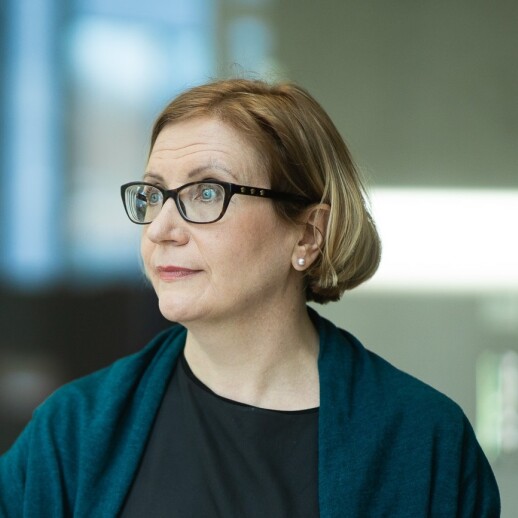In the international collaboration, researchers develop reliable digital platforms to encourage people to participate in decision-making.
Professor of Political Science Maija Setälä from the University of Turku is one of the four leading researchers in the international Advancing Digital Democratic Innovation (ADDI) project. The European Research Council ERC has granted the project nearly €10 million as a ERC Synergy Grant, which is one of the most competed funding in Europe. The share of the University of Turku of the funding is €2.3 million.
“In this project, we are conducting ground-breaking basic research on the relationship between democratic deliberation and voting. We are also studying how AI could benefit democratic deliberation and decision-making. Furthermore, we are developing innovative and scalable forms of civic participation and deliberation which are needed to strengthen democracy," says Setälä.
“This is the first ERC Synergy funding for the University of Turku and it is perhaps the most competed funding in the EU. ADDI represents the type of project valued by the funding scheme, where top researchers from different disciplines work on a common, extensive and difficult problem,” says Maria Maunula, Senior Research Funding Specialist at the University of Turku.
Researchers explore the potential of digital platforms to promote democratic practices
People can be encouraged to participate in decision-making affecting them through digital platforms, such as websites or applications. Platforms can provide opportunities to share ideas, make suggestions, vote, fill in surveys or give feedback, for example. Such platforms can be used by governments, social movements, and organisations.
“We are conducting theoretical and experimental research on the basic mechanisms of democracy. The stability of democratic voting decisions is enhanced when people have a common understanding of the nature of the political problem, for example, the different objectives of climate policy. Democratic deliberation is a way of producing such shared perceptions, and it is as much a part of democracy as voting," says Setälä.
The researchers will test the digital platforms developed in the project through randomised trials and analyse the results. The goal is both to improve the performance of the platforms and to better understand how to involve people in decision-making on complex policy issues. With this approach, the researchers are aiming to find out whether digital platforms promote democratic practices. In addition, the research will produce scientifically validated open-source tools that will allow the platforms to be launched globally.
“We are also exploring the possibilities of using AI to help set the agenda for deliberative mini-publics, such as citizens assemblies and juries, produce statements, and to facilitate mutual understanding more generally," says Setälä.
The other leading researchers in the project are Umberto Grandi from the University of Toulouse, Ulle Endriss from the University of Amsterdam, and César Hidalgo from the Toulouse School of Economics. Setälä's expertise in the project is focused on policy research, while the other researchers are experts in mathematical models, artificial intelligence, and behavioural sciences. The six-year project will start in 2025 and is coordinated by the University of Toulouse.






